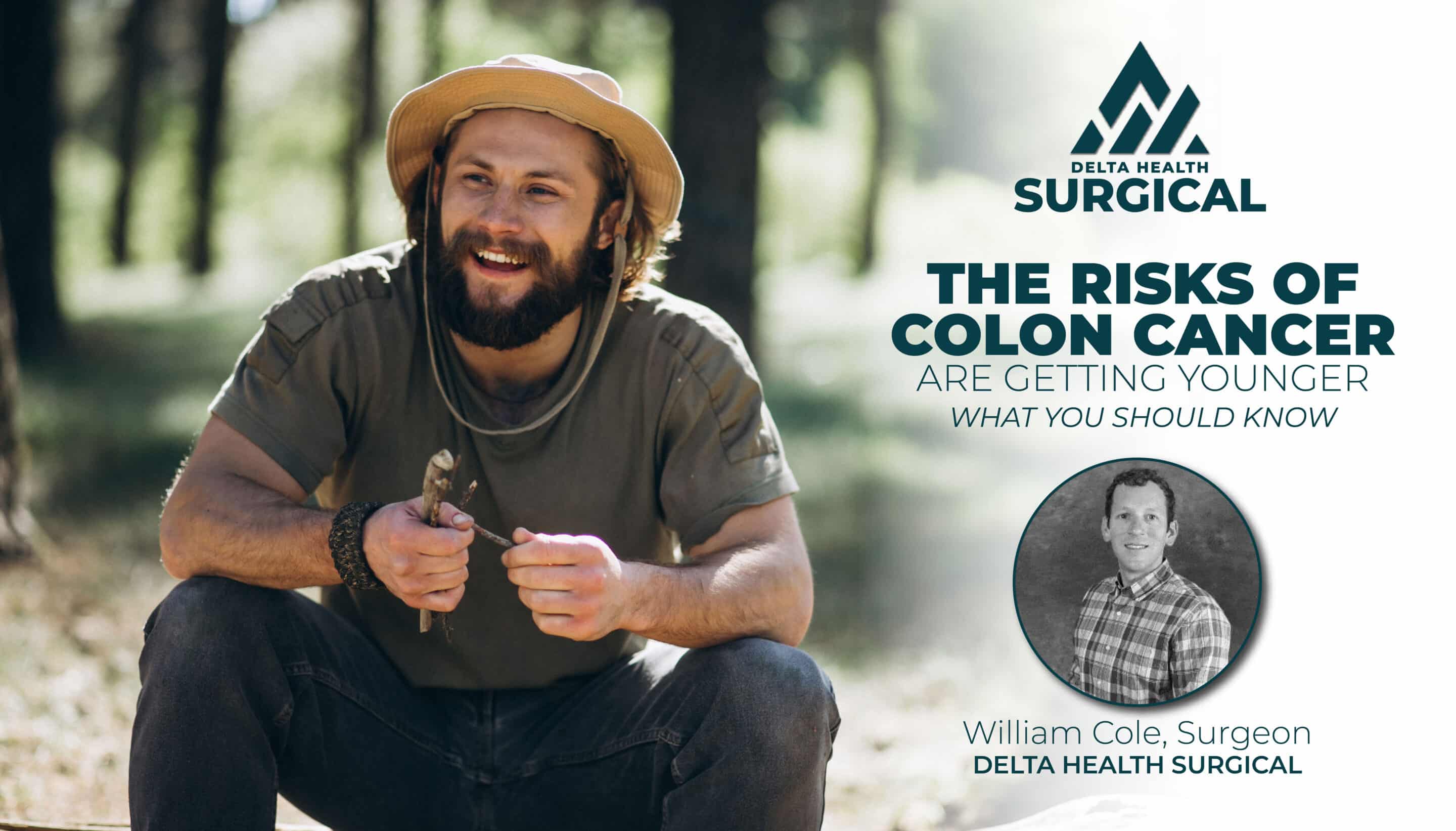As a surgeon, I often hear things like, “So my doctor told me it was time to do my colon cancer screening,” and it’s usually followed by a big sigh. It’s another moment in the doctor’s office that no one really looks forward to. A colonoscopy with (yikes!) the bowel prep? Collecting your own stool to put in a little container and then send in the mail can seem a little bit crazy, and on top of that – they now want you to start screening earlier? At age 45? They must really be crazy, but the answer is yes. And as one of those doctors, I can see why you feel that way, but I promise we’re not crazy. At least, not entirely.
Here’s why we think colon cancer screenings and running a bunch of tests on your poop is actually a good idea. Colon cancer is common. It is the fourth most common cancer in the United States. It is the second most common cause of cancer death in the United States. Only lung cancer kills more people each year than colon cancer. But colon cancer is preventable, and that’s where the bowel prep and periscope or poop collecting starts to seem worth it. In fact, colon cancer screening, especially if done using a colonoscopy, is believed to decrease your chances of developing colon cancer by 30% and lower the chance of dying of colon cancer by 50%.
How does this work? It works because colon cancers begin as polyps, small noncancerous growths. These develop slowly but steadily into cancer over the course of 10-20 years, if the polyps are not removed. During a colonoscopy, thankfully, the polyps can be removed before they turn into cancer. That’s how you lower your chance of getting colon cancer by 30%. And, if a cancer has developed but is found when it is still small, the cancer can often be removed with the colonoscope. This can reduce the need for major colon surgery, which is required for larger tumors, caught later on. Finding and treating colon cancers early is how you lower your chance of dying from colon cancer by 50%.
But wouldn’t I know if I had colon cancer? Unfortunately, the answer there is a resounding no. At least, you wouldn’t know until it was large or advanced. Most patients do not show symptoms until the tumors are big enough to bleed or cause a colon blockage. And once they have reached this size, the cancers are more likely to have spread outside the colon, are more difficult to treat (requiring surgery, chemotherapy, or a combination of both), and lower chances of survival.
Okay fine, but really at the age of 45 now? Yes. Unfortunately, the rate of colon cancer in those aged 40-49 has increased by roughly 50% in the last few years, for reasons we don’t really know yet. But regardless of why exactly it’s happening, it sure is happening, so we need to start checking sooner than we used to.
Are there other things I can do to reduce my risk of colon cancer? Yes, but none of them are even close to preventing colon cancer the way screening colonoscopies and stool tests do. They are the same things your (maybe crazy) doctor is already hounding you to do: lose weight, get more exercise, stop smoking, don’t drink too much alcohol, and avoid processed foods. Please, do that stuff anyway. It’s good for you.
So, as we crazy doctors always do, I’ll push you again to please do your colon cancer screenings starting at age 45. This can be a colonoscopy (probably best), but it can also be a stool test (cologuard or FIT test). If nothing else, it will make us stop bothering you. Well, at least stop bothering you about that, and at least for a little while.
Dr. Cole is a surgeon at Delta Health Surgical. For more information on colon screenings, contact your Delta Health primary care provider, or to learn more about Delta Health Surgical, visit deltahealthco.org/delta-health-surgical/.


